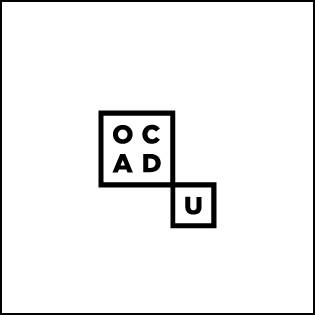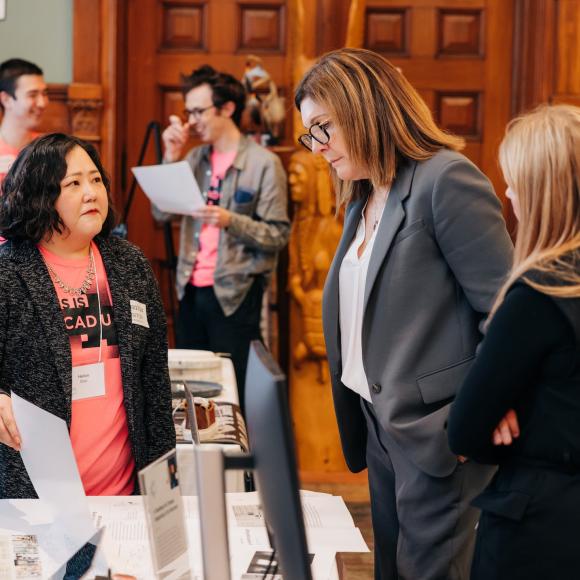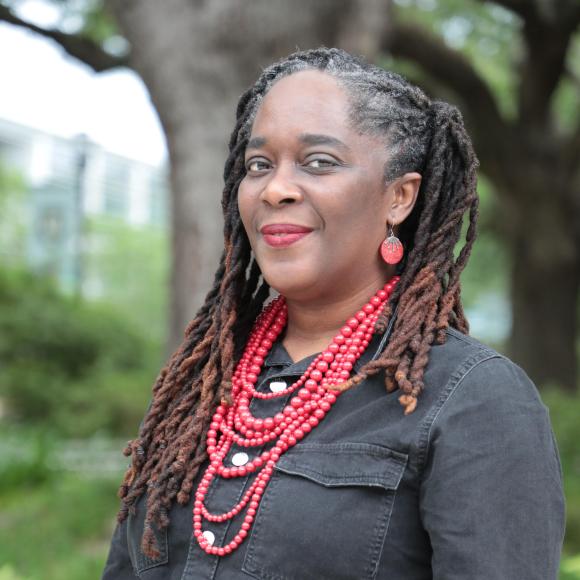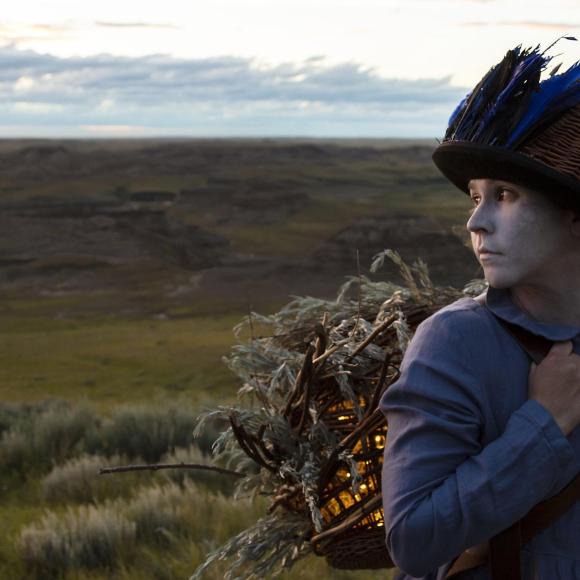Dr. Caroline Langill attends National Building Reconciliation Forum

Dr. Caroline Langill, Vice-President, Academic & Provost, OCAD University, joined higher education and Indigenous leaders at the fifth annual Building Reconciliation Forum held last week at Algoma University – the only university in Canada located on the site of a former residential school.
Jointly hosted by Algoma University, Shingwauk Kinoomaage Gamig, Nipissing University, Cape Breton University and the University of Northern British Columbia, the forum brought together more than 250 participants including university and Indigenous community leaders, Elders, residential school survivors, partners and students from across the country. In advance of the fifth anniversary of the Final Report of the Truth and Reconciliation Commission of Canada, the forum offered participants a valuable opportunity to exchange ideas and share best practices on how to advance reconciliation through higher education and support the healing journey.
"Attending the National Building Reconciliation Forum on the site of Shingwauk school where Algoma University now stands was an honour,” said Dr. Langill. “Many of the invited speakers were passionate about the need for reconciliation while also noting the distance we are from it in education. Listening to residential school survivors speak about their experiences attending the school, onsite, in the halls and on the grounds where they lived out their childhoods, was deeply moving.”
The theme of this year’s forum was Wiiji-nookiimding wii-noojmoweng, dibaajmotaading, doodamowin miinwaa debwe’endaagziwin – wii-ni-niigaaniing, meaning to work together to advance healing and reconciliation in the Anishinaabemowin language.
“There were many lessons for OCAD University, but one which stood out and was a common theme was expressed by Mike DeGagne, President at Nippissing University – 'How can we bring the university to the community?' ” added Dr. Langill. “We began this work with Six Nations Polytechnic through the Indigenous Visual Culture Program and it is time we moved it further forward."
OCAD University believes that Indigenous knowledges and cultures are of fundamental importance to the future of Canada, both to Indigenous individuals and communities, and to Canadian society. In the last decade, OCAD U created an Indigenous Visual Culture Program, one of the first of its kind to be established at an art and design university, and established an Aboriginal Education Council. Including national representation, the Council’s mandate is to recommend initiatives and share strategies that provide direction and guidance on the development of the program and supporting initiatives.


